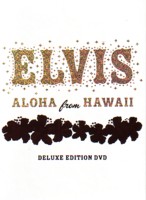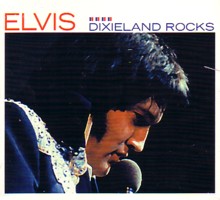 |
 |

Source: Tom Van Riper, Forbes magazine, 15 Aug 2007 Elvis Presley may have left the building 30 years ago, but that hasn't stopped the company that owns his name from putting up more buildings.
By The Numbers: Elvis Presley's EmpireVideo: The King's Business Lives On They certainly have a great property to start with. Elvis was one of the 20th century's biggest cultural forces--the first white, mainstream rock star whose slick hair and shaking hips unleashed the pent-up dance fever and sexual energy of 1950s teenagers. And he arguably became even bigger after his death 30 years ago this Thursday than he ever was in life. He regularly ranks high on Forbes.com's annual ranking of the world's Top-Earning Dead Celebrities. Last year he earned some $40 million. His passing launched a whole new world of Elvis sightings and impersonators (or, if you prefer, "tribute artists"). About 600,000 people visit Graceland annually, and millions more snap up Elvis-themed trinkets ranging from cigarette lighters to thermal mugs. A recent CD release "30 #1 Hits," sold 4 million copies. In all, more than than 200 companies have official licensing agreements with Elvis Presley Enterprises, including greeting card maker American Greetings and candy giant Hershey (nyse: HSY - news - people). It's all been enough to consistently yield a steady annual revenue stream for EPE, the business arm of Presley's estate, which CKX paid daughter Lisa Marie $100 million in exchange for an 85% stake back in 2005. Some immediate synergies were obvious. CKX controls the smash TV hit American Idol, which occasionally shows archived footage of Presley to its young viewer base. But executives think there are plenty of other ways to kick-start growth. The firm has gone on the offensive to expand the King's appeal to a new generation of fans, not an easy task when the person you're marketing hasn't made any new music since the early 1970s. Slater and his boss, CKX Chief Executive Robert Sillerman, see a lot of untapped potential in Graceland. The company aims to double attendance by sprucing up the surrounding area with a visitors center and a 250-room hotel. CKX now owns 100 acres of land next to the main 14-acre parcel around the main house. The idea is to draw convention business to complement individual tourists who have traditionally been the site's bread and butter. The firm is also getting aggressive in Las Vegas. A new facility for a regular Elvis show is under development in partnership with MGM Mirage and Cirque du Soleil is slated to open November 2009. That's in addition to an Elvis hotel and casino that CKX, which owns shares in casino company Riviera Holdings, is developing on the Las Vegas strip. Simultaneously, CKX is slowing things down on the licensing front, figuring it's better to take a breath and concentrate on the right mix between profits and tackiness. The company has reduced the number of licensees by about 20%, from over 300, since taking over two years ago. It put the kibosh on a line of jeans that EPE had been selling in conjunction with Blue Holdings, known largely for launching the Sasson jeans brand in the '70s. "We wanted to take a step back and look at the brand," Slater says. While it's easy to say that the avalanche of junk out there that's sold with an Elvis likeness tends to cheapen the brand image, it's still in CKX's interests to get that business for itself rather than watch it go underground. At the end of the day, spurring a new round of growth for EPE means broadening the fanbase to a younger audience, those either not yet born or in diapers when Presley passed away. A challenging thought, for sure. But then again, there's only one Elvis. He was the first rock star to tap the inner rebel in America's (and much of the world's) teenagers, an image that still resonates with the young crowd today. About half of Graceland's annual visitors are under 35, according to Slater. And modern technology, recently used to superimpose a crooning Elvis in a video duet with Celine Dion, could allow CKX to build a whole new war chest of intellectual properties that bring the old king into the modern world. "Anytime you're talking about the marketing of a celebrity, you need something to differentiate him," says Jeff Chown, president of Davie Brown Talent in Los Angeles. Elvis would seem to fit the bill. "Here's a guy who had a unique style, look and sound," Chown says. "The younger demographic gravitates to it." Visit EIN's comprehensive "Sale of EPE" Archives
|
|




